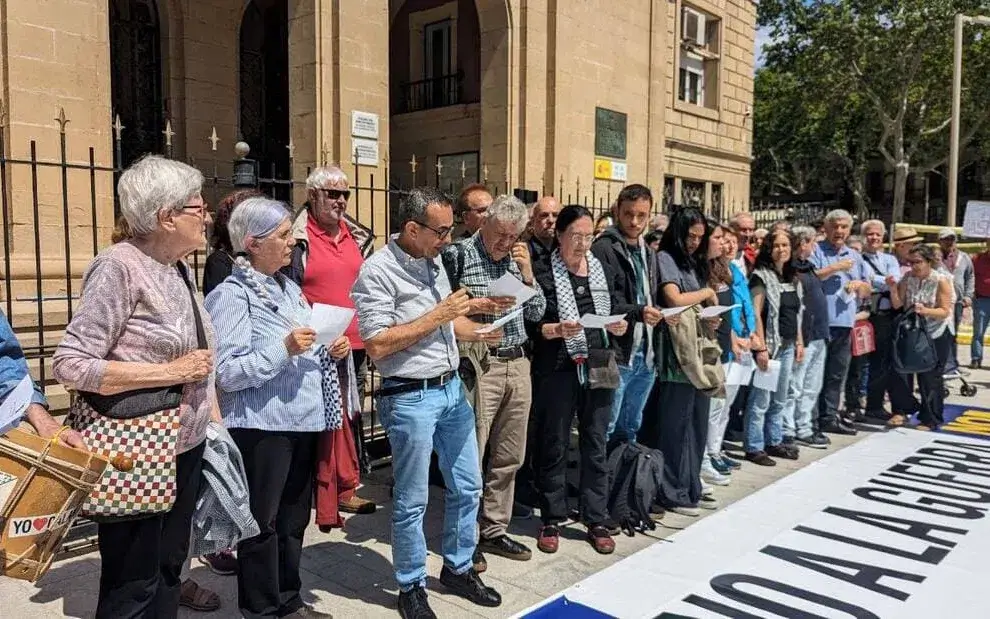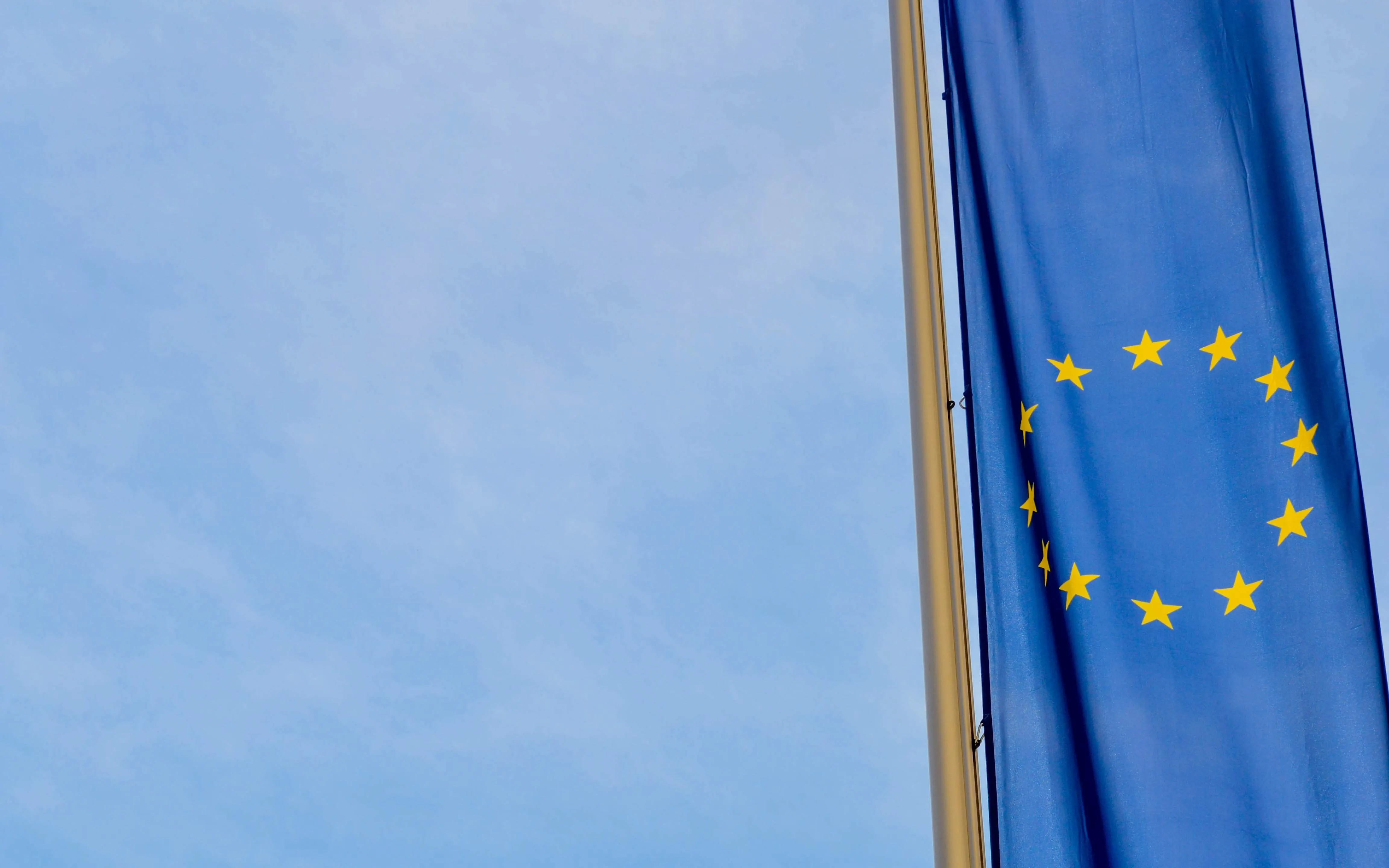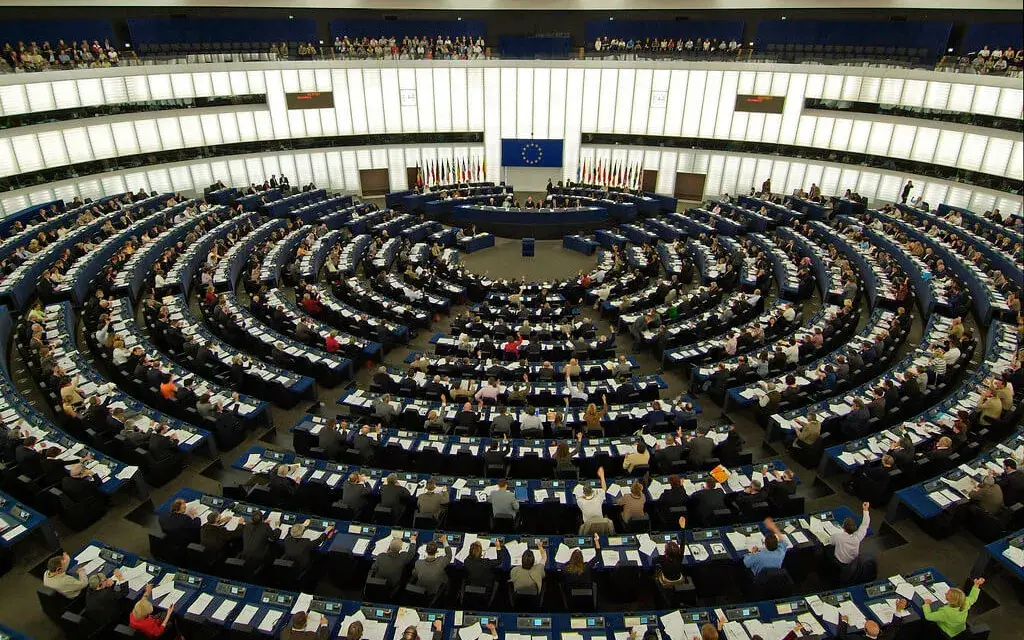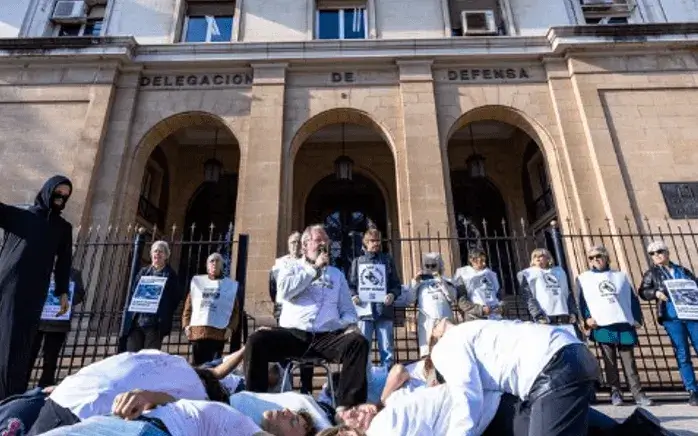Nearly two hundred Catalan and other Spanish collectives are demanding an end to the militaristic spiral and promoting policies of peace, détente, and shared security.
These are tumultuous times on the global stage. The world is struck by conflicts, wars, epidemics, and catastrophes that fill the media daily and fuel a trend pushing the planet toward the abyss without anyone seemingly wanting to stop it. The massacre in Gaza or the war in Ukraine, ongoing for over two years now, are just two examples of this dangerous global drift.
Europe is not immune to this dynamic; quite the contrary. For months, the Old Continent has been immersed in a militaristic spiral resulting in increased defense budgets and bellicose rhetoric from European political leaders, who stir up the specter of a large-scale war to gain public support for their rearmament and militarization plans.
In this context, the European elections on June 9 can mark a turning point. According to polls, they could lead to a European Parliament more skewed towards extreme right-wing positions than ever before.
To denounce this militaristic shift and demand a change in direction to promote policies of peace, détente, and shared security, a broad range of social organizations—more than 170 so far—from Catalonia and across Spain have united their voices in a manifesto clearly stating “No to militarization and no to war".
An Accelerated Militaristic Drift
Promoted by collectives like Fundipau, the Centre Delàs, NOVACT, Justícia i Pau, the platform Aturem la Guerra , and the AutoDefensa Noviolenta Portal de la Pau group, among many others, the manifesto warns that under the threat of a global war stoked for months by European leaders, “the continent's economies are shifting towards war budgets at a time when the cost of living is becoming unaffordable for large segments of the European population.”
All this, they say, is part of a strategy to justify a policy of rearmament and militarization that serves as a prelude to a war framework that has been taking shape for years. They recall that in 2014, NATO countries agreed to increase their defense budgets to 2% of GDP.
This militaristic drift has accelerated due to the war in Ukraine and the genocide against the Palestinian people perpetrated by Israel, which has only driven “an increase in spending on new weapons acquisition, the incorporation of compulsory military service, funding for the military industry to produce more, and the creation of more funding pools to develop new, more lethal and autonomous prototypes.”
The fear of a possible Russian invasion of Europe, fueled by European leadership and institutions, has been the perfect pretext to gain public support for these policies.
A glance at the data confirms this increase in military spending, which, in the case of EU member states, rose by more than 21% between 2022 and 2023, reaching nearly €289 billion. Adding the community expenditure and that of the UK and Norway, the amount rises to more than €374 billion, the world's second-highest military spending, behind only the United States and four times that of Russia.
The manifesto thus condemns the EU’s “Military Deterrence Policy,” calling it “absurd and suicidal,” leading only to “an escalation of tension, an arms race, and a bellicose spiral,” against the backdrop of a nuclear threat that could result in the planet's destruction.
Proposals for Détente, Peace, and Shared Security
These European elections on June 9 are thus a crucial moment to decide whether to push for policies of peace, détente, and shared security, or deepen this militaristic escalation.
Continuing to increase military spending, the manifesto's promoters remind us, “means reducing resources to fight climate change, reduce inequalities and gender equity, health, salary harmonization, or citizens’ rights.”
In this scenario, the organizations signing the manifesto propose to political forces running in the elections to move away from the militaristic drift and pave the way for peace, détente, and shared security.
Specifically, the campaign’s promoting collectives call to “opt for détente” and leave behind “NATO’s militaristic rhetoric and arms spirals” to de-escalate conflicts, open dialogue paths, and strengthen negotiation, cooperation, and nonviolence. Thus, opting for shared and common security should help end conflicts like those in Ukraine and Palestine.
At the same time, they advocate for a foreign policy “oriented towards peace and human security” using tools such as mediation, diplomacy, human rights defense, and civilian intervention to build a peaceful world.
All this will not be possible without fostering dialogue spaces involving various agents such as social movements, academics, and politicians, resulting in “political proposals for peace, civil peace bodies, and non-armed civil defense and security.” This must go hand in hand with the reconversion of the military industry into civil productive sectors of interest.
Likewise, the manifesto highlights the need to foster “environmental peace” based on science, including just and secure decarbonization policies to avoid climate collapse. Ultimately, they conclude, it is about promoting decisions focused primarily on improving people’s daily lives and enhancing a human security policy centered on the population’s needs.









Add new comment